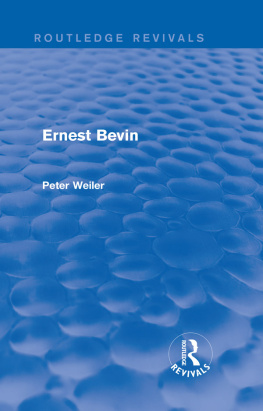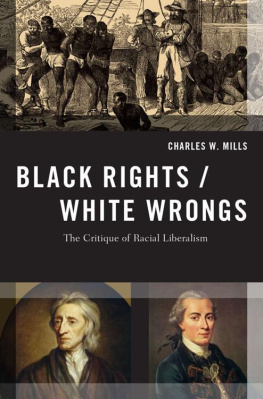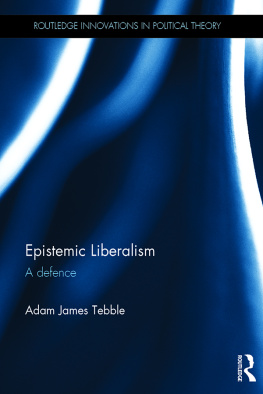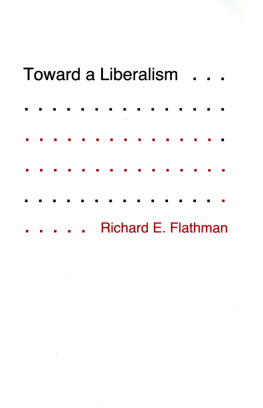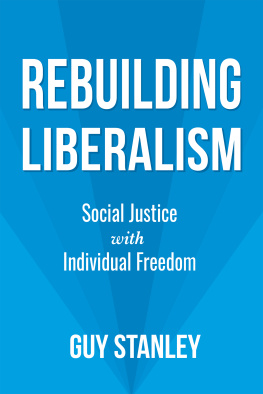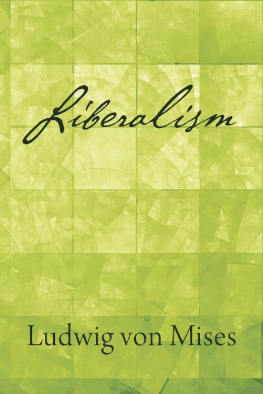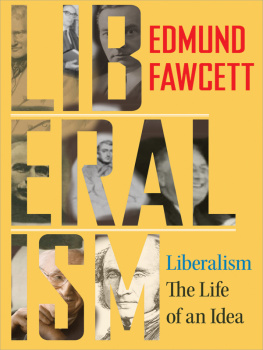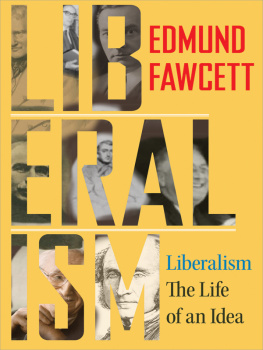First published in 1982 by Garland Publishing, Inc.
This edition first published in 2017
by Routledge
2 Park Square, Milton Park, Abingdon, Oxon OX14 4RN
and by Routledge
711 Third Avenue, New York, NY 10017
Routledge is an imprint of the Taylor & Francis Group, an informa business
1982 Peter Weiler
All rights reserved. No part of this book may be reprinted or reproduced or utilised in any form or by any electronic, mechanical, or other means, now known or hereafter invented, including photocopying and recording, or in any information storage or retrieval system, without permission in writing from the publishers.
Trademark notice : Product or corporate names may be trademarks or registered trademarks, and are used only for identification and explanation without intent to infringe.
British Library Cataloguing in Publication Data
A catalogue record for this book is available from the British Library
ISBN: 978-1-138-69658-7 (Set)
ISBN: 978-1-315-52405-4 (Set) (ebk)
ISBN: 978-1-138-69652-5 (Volume 8) (hbk)
ISBN: 978-1-315-52425-2 (Volume 8) (ebk)
Publisher's Note
The publisher has gone to great lengths to ensure the quality of this reprint but points out that some imperfections in the original copies may be apparent.
Disclaimer
The publisher has made every effort to trace copyright holders and would welcome correspondence from those they have been unable to trace.
1982 Peter Weiler
All rights reserved
Library of Congress Cataloging in Publication Data
Weiler, Peter, 1942
The new liberalism.
(Modern British history ; 12)
Originally presented as the author's thesis.
Bibliography: p.
Includes index.
1. LiberalismGreat BritainHistory. I. Title. II. Series.
JA84.G7W44 1982 320.5'13'0941 81-48370
ISBN 0-8240-5166-1
All volumes in this series are printed on acid-free, 250-year-life paper. Printed in the United States of America
At the time this thesis was written, between 1966 and 1968, the new Liberalism, the great change in Liberalism as an ideology and a political practice that characterized the years before the First World War, remained largely unexamined by historians. Since then a large number of books and articles have appeared exploring its intellectual and political dimensions. Although these would now require the modification of some points--for example, to stress more the Fabian influence on J.A. Hobson and L.T. Hobhouse--in general the analysis presented here of the new Liberalism holds good. It contends that the new Liberals successfully overcame the need they saw in the 1890's to make Liberalism more social reformist. L. T. Hobhouse described the problem:
The nineteenth century might be called the age of Liberalism, yet its close saw the fortunes of that great movement brought to their lowest ebb. Whether at home or abroad those who represented Liberal ideas had suffered crushing defeats .... Its faith in itself was waxing cold. It seemed to have done its work. It had the air of a creed that is becoming fossilized as an extinct form, a fossil that occupied, moreover, an awkward position between two very active and energetically moving grindstones--the upper grindstone of plutocratic imperialism and the nether grindstone of social democracy.
Hobhouse wrote that description in 1911 and for three more years atleast it seemed as if Liberalism had escaped the dilemma he described. By justifying a great increase of what was called then collectivism in terms of traditional Liberal concerns for the individual, character, and freedom, the journalists and intellectuals who elaborated and publicised the new Liberalism created a theoretical framework for the famous social reforms of the 1906 government, moving Liberal ideology away from laissez-faire and the attack on privilege to an acceptance of the full implications of democracy, namely, that freedom required a greater equality obtainable only by interference with the capitalist market. By so doing, they seemed to have made Liberalism relevant to the needs of an urbanized, twentieth century society, and responsive to a working class electorate.
Historians sometimes swing between two poles of explanation, on the one hand defending their findings as marking some sort of revolution, a key moment of historical change, on the other hand denying seminal moments, smoothing all history into one continuum. With regard to the new Liberalism the obvious and continuing question remains whether it really was something new. Here one needs to distinguish between the new Liberalism as an ideology and the new Liberalism as a political practice. The latter is best exemplified by the reforms of the last Liberal administration. While part of the financial policy underlying these reforms marked a sharp break with traditional financial orthodoxy--by attempting, for example, to distinguish between earned and unearned incomes--the reforms themselves display a strong and continuing concern for character, self-reliance, In that respect they represent a continuation of the policies of previous Liberal administrations and of the 19th century individualist tradition. Although reforms like pensions and insurance were certainly novel, entering areas that had hitherto been sancrosanct, they can still be seen as stemming from concerns grounded in an earlier tradition.
If we consider the new Liberalism, however, as a change in ideas, a revision of traditional Liberal notions of the individual, society, and the role of the state, then there can be little doubt that it represents the decisive moment in the shift between the individualist Liberalism of the mid-19th century and the welfare state Liberalism of the 20th century. It is precisely the extent of their revision of this tradition that justifies regarding the new Liberalism as a significant moment in the formation of contemporary political views.
The uniqueness of the new Liberals' contribution to the demise of this laissez-faire tradition also has been indirectly suggested by E. P. Hennock in an article which argues that Charles Booth's famous study on the London poor. did not mark the significant break in social thought that has usually been assumed. Hennock contends that Booth merely systematized and extended attitudes towards the poor and poverty that emerged in the 1860's, particularly the concern to distinguish between various kinds of impoverished workers. This interpretation of Booth thus sees the decisive shift in attitudes toward the poor developing in the next decade as a result of experience, failed attempts to overcome clearly perceived social problems, and new studies, like Rowntree's examination of York. The new Liberalism certainly formed an important part of this changing view of poverty. At the same time, however, it is worth reaffirming that the new Liberals who came of age in the 1880's thought this decade was decisive for their own political development. Whatever the limitations of Booth's understanding of poverty, his study remained a decisive landmark for all social reformers. Thereafter, no one could doubt the reality or extent of poverty.


